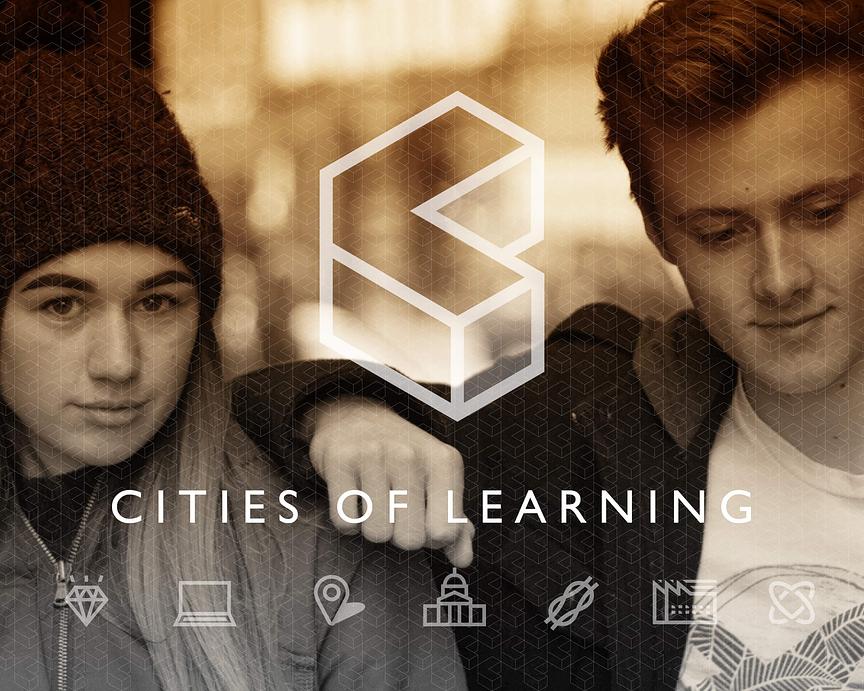Building on the work of LRNG Cities in the USA and the UNESCO Learning Cities movement, the RSA & DigitalMe have devised a new way to connect people with opportunities at scale across our cities, unlocking untapped potential for all individuals, employers and communities.
Cities of Learning is orientated around three key design principles - leadership, networks and platform. In practice this means establishing a new local leadership model in localities (engaging and bringing together civic, business, third sector organisations and education leaders), mobilising diverse networks of learning providers, and augmenting this with a digital platform which connects learners to networks of employers, formal and non-formal education providers.
Learning experiences across Cities are recognised via digital open badges, which demonstrate the knowledge, skills and capabilities gained by learners through different learning activities. Each City of Learning has its own 'skills spine' which learning experiences are connected to, and from which learning pathways into further learning or employment are created.
The technology platform uses data insights to create new pathways into learning and employment, and drive better commissioning of services and opportunites. An inclusive approach that promotes and recognises learning wherever it happens and leads to new pathways into education and work.
The concept was prototyped in three UK Cities in 2017 - Brighton, Greater Manchester and Plymouth - and the RSA and DigitalMe are working towards the launch of two evaluated pilots of Cities of Learning in 2019.

